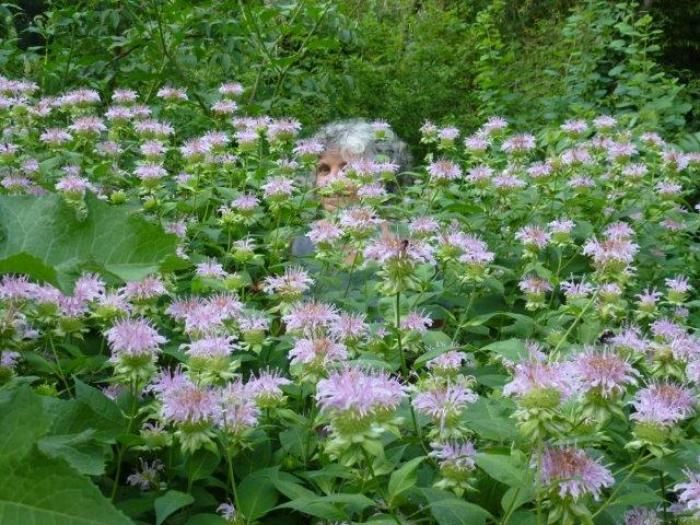
These handsome, aromatic, annual and perennial plants have gorgeous shaggy flowerheads, which attract many pollinators, and can grow up to 4 feet in height. Right now I have four monardas in bloom and they are abuzz with all sorts of bees, butterflies and moths, not to mention hummingbirds.
Herb Profile:
Monarda spp., Herb of the Year 1996
Other names: Beebalm, bergamot, wild bergamot, Oswego tea, horsemint
Range: Native to North America, Canada, south to Georgia and west to Illinois;
M. citriodora is native to southern United States and northern Mexico
Member of the Lamiaceae (Labiatae); the mint family
Lanceolate leaves vary from bright to grey green, most are toothed. Inimitable, shaggy flower heads appear on whorls: M. didyma are scarlet red; M. fistulosa are lavender to pink; M. xmedia are rose, red or purple; M. punctata are pale yellow with purple spots; the annual M. citriodora ranges from lavender to white.
Monardas need sun, M. didyma and M. xmedia prefer well-drained loamy soil a bit moist, while M. fistulosa and M. punctata like an alkaline soil a bit dry; some species hardy to zone 4, M. citriodora to zone 7. My patch of scarlet red beebalm (M. didyma) has spread over the years and is about 10-by 15- feet with blooms reaching about 36-to 48-inches in height. The hummingbirds particularly love this plant and no wonder as the blooms taste rather like tea-flavored honeysuckle.
This year the M. fistulosa is honking. I had two or three plants in a bed near the drive and they sort of stayed about 3-feet in height and didn’t spread too much. There was a tree there, which we had to remove last year and those plants have taken off with the newfound light. It has become one huge mass of lavender blooms which are 4-to 6-feet in height–I have never seen them grow quite so large–I can look through them and some are above my head!
All of the beebalms, as their name implies, are great for relieving bee or wasp stings and insect bites. Just take a few leaves and bruise them and rub them on the sting. Or better yet, make a little poultice by chewing the leaves or chopping them fine and putting them on the area and wrapping a clean cloth around it to hold the macerated leaves on the spot. It will relieve the pain right away and reduce the swelling. Reapply as needed.
In the kitchen:
M. didyma has tea-like fragrance and flavor reminiscent of Earl Grey tea. This sweet herb can be identified by its bright red flowers, which are wonderful with summer fruit, beverages, syrups, desserts from baked goods to ice cream and custard.
All of the other monardas are very different in flavor; they are savory and pungent and not to be used in sweets and desserts. M. citriodora, M. fistulosa and M. xmedia contain carvacrol and/or thymol, which gives them the spicy flavor of oregano or thyme. This makes them good in savory dishes where you would use a spicy herb-use the chopped leaves and flowers in soups, sauces, marinades, beans, with eggs, meat, fowl, in pasta and grain salads, as garnish on pizza-not desserts.
If you don’t have any monardas in your garden, now is the time to plant them. They are like brightly colored firecrackers in the garden, bursting with bloom just in time for the Fourth of July. Have a happy and safe holiday and enjoy the July 1 full moon. This is the first one this month–we will be having another full moon on July 31–known as a blue moon when there are two full moons in the same month!
Monarda
“Speak not, whisper not,
Here bloweth thyme and bergamot,
Softly on thee every hour
Secret herbs their spices shower.”
—Walter de la Mare
The Sunken Garden
Fine Gardening Recommended Products

A.M. Leonard Deluxe Soil Knife & Leather Sheath Combo
Fine Gardening receives a commission for items purchased through links on this site, including Amazon Associates and other affiliate advertising programs.
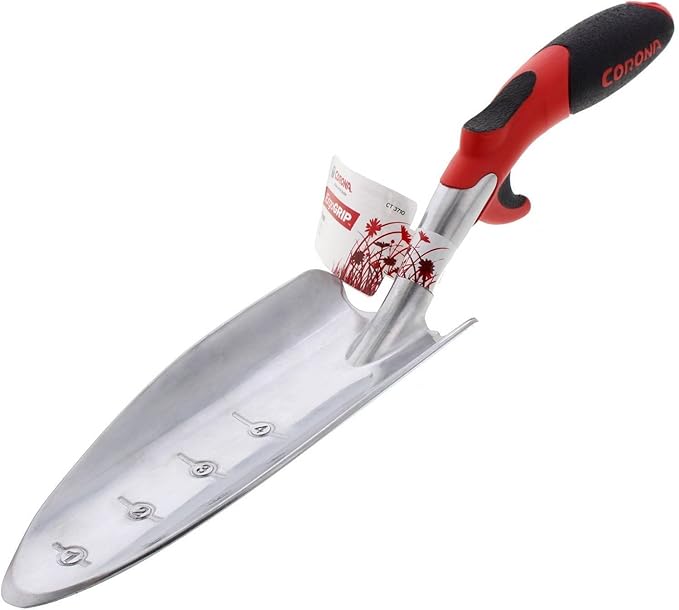
Corona E-Grip Trowel
Fine Gardening receives a commission for items purchased through links on this site, including Amazon Associates and other affiliate advertising programs.
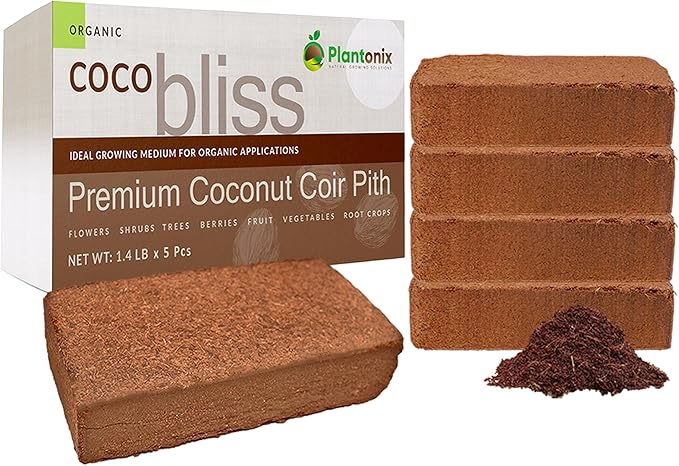
Coco Bliss 650gm Bricks (5-Pack) - Organic Coco Coir
Fine Gardening receives a commission for items purchased through links on this site, including Amazon Associates and other affiliate advertising programs.


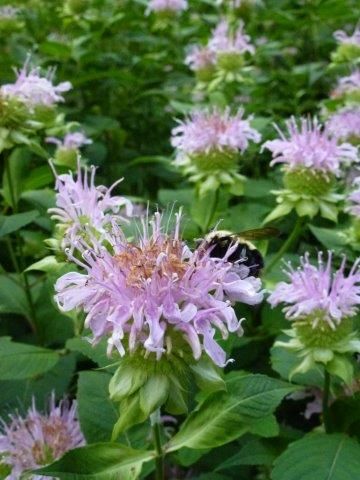
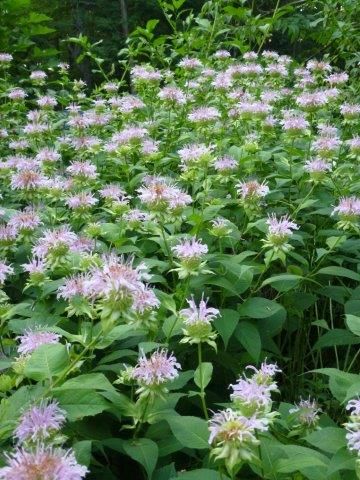
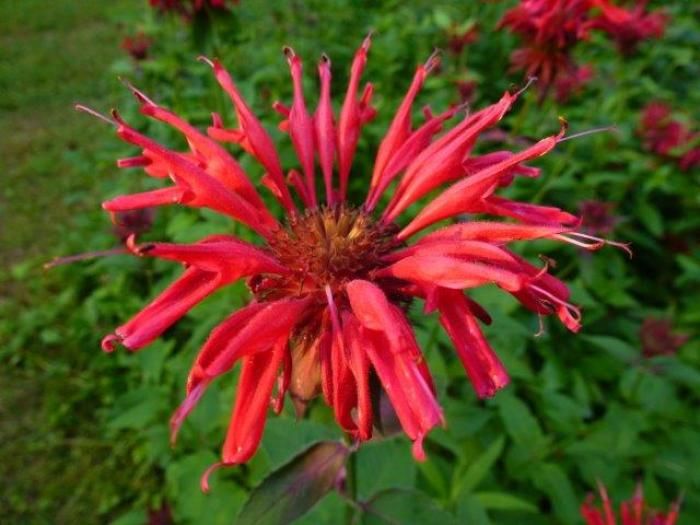
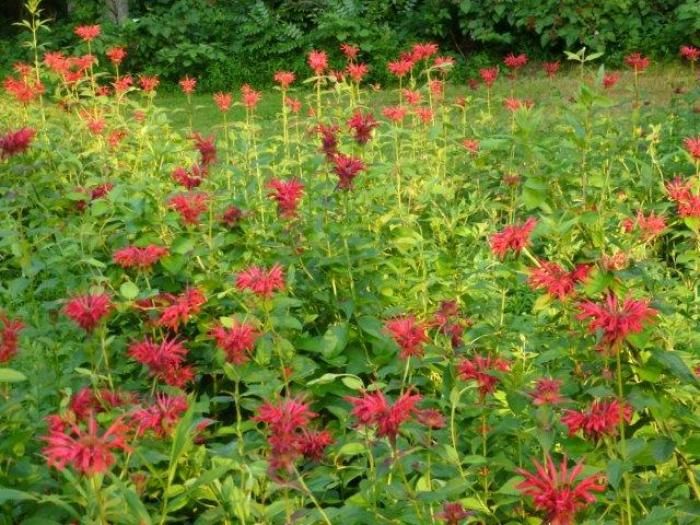
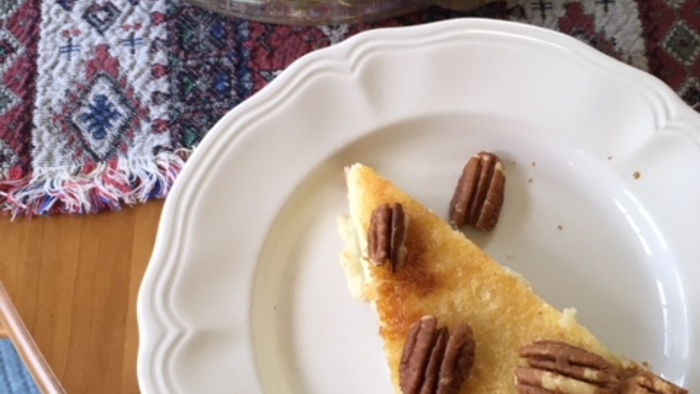





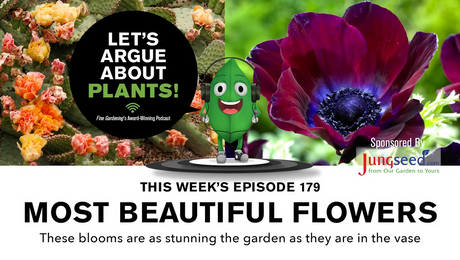










Comments
it is wonderful gardening post I am here toerror 503 give you best thing about window error website.
Log in or create an account to post a comment.
Sign up Log in